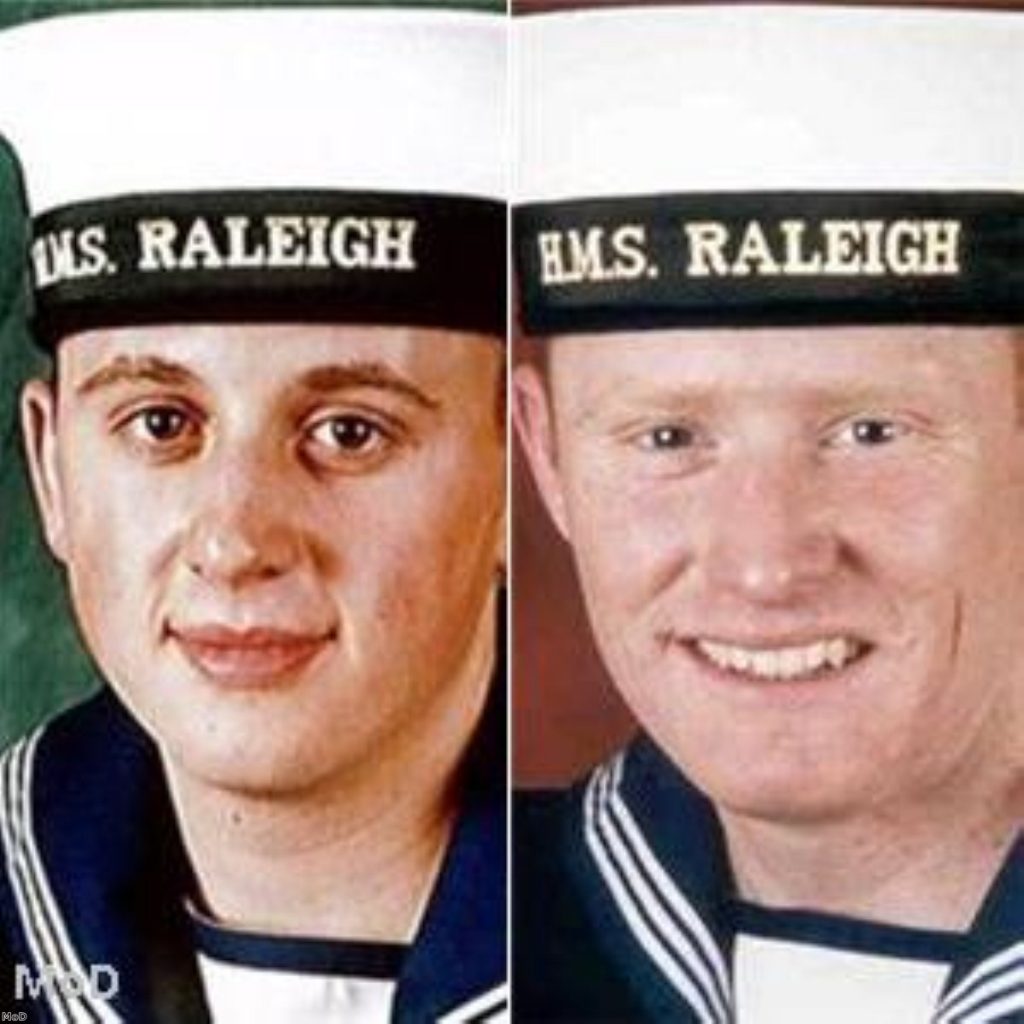Safety failings blamed for submarine deaths
The Royal Navy did not fully appreciate the “safety considerations” relating to a device whose failure left two submariners dead last year, the chief of the naval staff has said.
Admiral Sir Jonathon Band, chief of the naval staff, made the admission as the Ministry of Defence (MoD) publishes its board of inquiry findings into the deaths of Leading Operator Mechanic Paul McCann and Operator Mechanic Anthony Huntrod on March 21st 2007.
Both were onboard HMS Tireless, a nuclear-powered submarine operating underneath the Arctic ice at the time, when a faulty self-contained oxygen generator (Scog) exploded.
The board of inquiry was able to establish why the accident occurred thanks to testing by Nasa, which is developing its own Scogs for use on the international space station. It concluded the Scog exploded because of oil contamination and has uncovered what Admiral Band admitted were safety procedures which were “not up to the mark”.


“At what I realise is a very difficult time, I would like to express my deepest sympathies to the families, friends and colleagues of the two submariners who died,” he said.
“I would also like to apologise to them for those departmental failings identified by the board of inquiry which contributed to this tragic incident. I would like to make clear that everything possible is being done to ensure that this cannot happen again.”
The MoD is now conducting a further investigation into the risks surrounding Scogs. They had been used as a fallback option when the usual oxygen-generating technology, low pressure electrolyser, was unable to function properly, but have now been taken out of service.
It has emerged several Scogs were kept on a jetty for months before being embarked, while 996 others were upgraded from ‘unserviceable’ to ‘A1’ by logistics personnel because of changes in paperwork. It is not yet clear whether the Scog which exploded was one of these.
Furthermore the condition of other Scogs on HMS Tireless, showing oil staining and possible rusting on the lid of the devices, led board of inquiry president Captain Jake Moores to believe oil contamination was a possibility.
The board of inquiry report also contains details about the struggle of a third submariner, who has not been named, for survival in the immediate aftermath. He had to wait 44 minutes before relief because a buckled door jammed shut, during which time he had to fight several small fires and look after his dying colleagues.
Speaking in the Commons, shadow armed forces minister Gerald Howard said it was “absolutely inexplicable and unacceptable that there was no past-sell-by date” for the Scogs.
But defence minister Bob Ainsworth pointed out they had only been in use since 2003 and were supposed to last 15 years.
Mr Ainsworth said he regretted the fact the story of the deaths had broken before the next of kin had been informed.
“I don’t think that excuses the media behaving the way they do. I wish they would honour our ‘kinforming’ processes,” he added.
The board of inquiry has made 35 recommendations to the MoD which senior Royal Navy staff say are all being acted upon. These include improvements to the design of Scogs, stricter instructions on their handling, storage and stowage and reviews of education and training.









